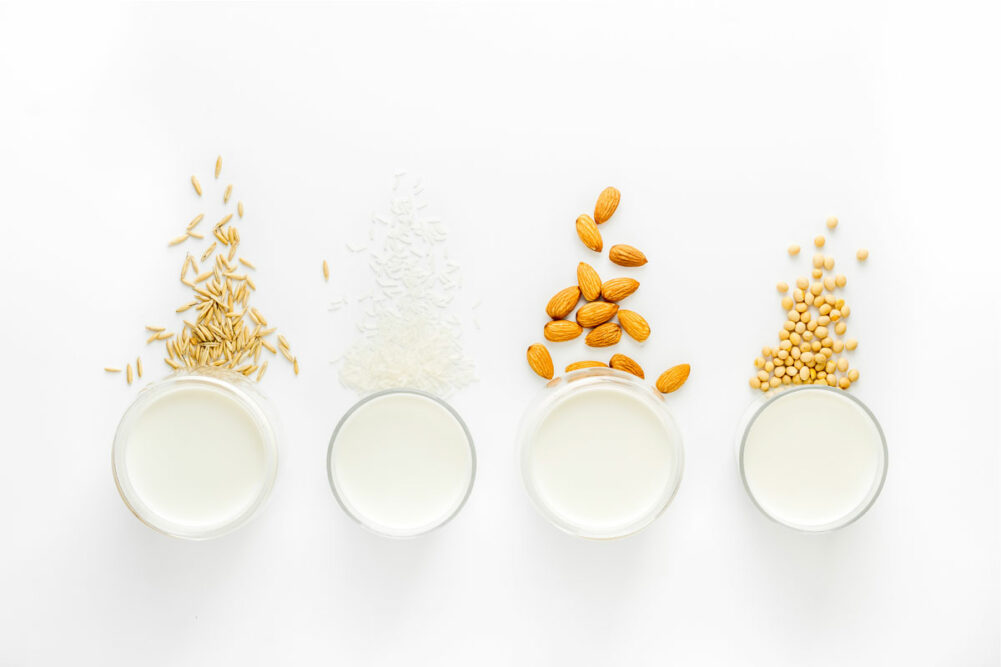MINNEAPOLIS — Inflation has taken a bite out of the retail plant-based milk category and, subsequently, the trend impacted SunOpta, Inc., during the second quarter ended July 1.
“There are enduring demand drivers such as lactose intolerance, taste preferences for plant-based milks over milk from a cow and health benefits, both for the individual and the planet,” said Joseph D. Ennen, chief executive officer, during an Aug. 9 conference call to discuss the results. “I believe the retail category headwinds are a short-term function of the inflationary environment and its impact on real wages.
“We know plant-based milks are more expensive. For example, in a leading retailer plant-based milk is 5¢ an oz compared to dairy milk at 2¢ an oz. As inflation softens, we would expect to return to growth, and this view is supported by research, which project a double-digit CAGR (compound annual growth rate) for the category over the next decade as millennials and Gen Z fully take center stage as the drivers of the US economy.”
Tracked channel data for plant-based milks in the second quarter showed softness throughout the quarter with sales up 1% and volume down 8%, said Scott E. Huckins, chief financial officer.
“Track channel data reports oat milk sales grew 9% on flat volume, with almond milk sales down 3% on 10% lower volumes,” Mr. Huckins said. “SunOpta total plant-based milk results across all channels were up 1% on 9% lower volumes.”
The weak demand for plant-based milks contributed to the $19.3 million loss SunOpta recorded during the quarter. The loss was slightly greater than the year before when the company recorded a loss of $18.6 million.
Quarterly sales fell 14% to $207.8 million from $243.5 million in fiscal 2022. Gross profit was $16.4 million for the second quarter, compared with $34.9 million the year before.
In SunOpta’s Plant-Based Foods and Beverages business unit, quarterly sales fell 8.1% to $114.5 million, excluding the impact of a sunflower business that was divested in 2022. Pricing contributed 3.2% to sales and was offset by a 10.2% decline in volume/mix. Items affecting business unit results included lower external sales of plant-based ingredients, lower demand for almond beverages, lower sales volumes of broths and lower tea volumes.
Business unit gross profit fell 39.8%, with startup costs associated with the company’s new processing plant in Midlothian, Texas, affecting results.
In the Fruit-Based Foods and Beverages business unit, sales fell 4.4% to $93.3 million. Price increases contributed less than 1% to quarterly sales while volume/mix fell 4.5%. The volume/mix impact was driven by lower volumes of frozen fruit, due to decreased retail consumption trends, constraints on certain fruit varieties impacting blends, and lost foodservice volumes, according to the company.
Gross profit in the Fruit-Based Foods and Beverages segment was $2 million, compared with $11 million during the prior year. A frozen fruit recall during the quarter impacted gross profit.
Due to the weak quarter and outlook for the rest of the year, SunOpta lowered its sales guidance from $1 billion to $1.05 billion to $880 million to $900 million. Adjusted EBITDA was lowered from a range of $97 million to $103 million to $87 million to $91 million.
“From a pacing standpoint for the total company, we would expect Q4 to be stronger than Q3,” Mr. Huckins said.
An analyst on the call asked Mr. Ennen about plant-based milk demand trends during this fiscal year and he said, “… We certainly believe the category long term has a lot of positives going for it. Just candidly, we don’t have any information that would tell us to kind of Sept. 1, it’s going to turn around or Oct. 1. So, we’re just operating off of the information we have today …”





